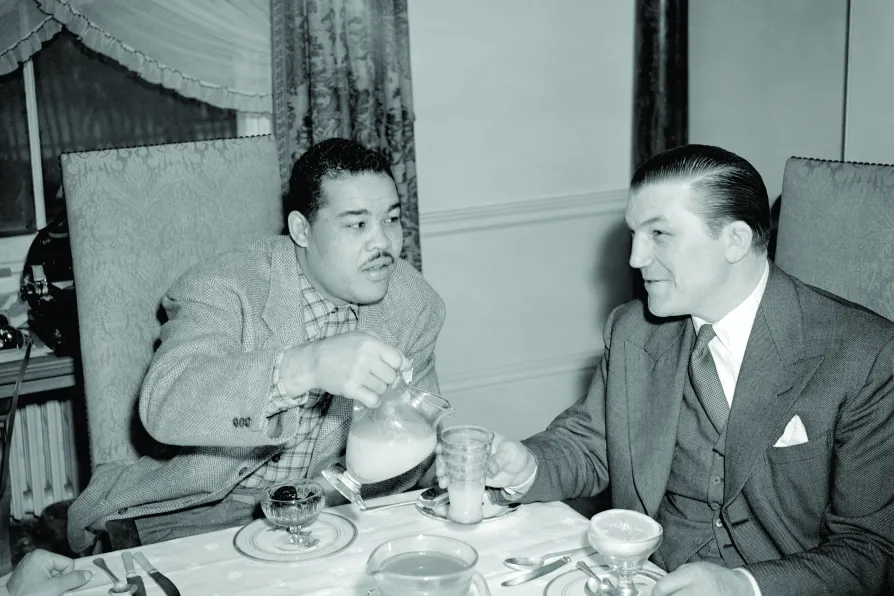
 Heavyweight boxers Joe Louis (left) and Tommy Farr breakfast in London in 1948
Heavyweight boxers Joe Louis (left) and Tommy Farr breakfast in London in 1948
YOU won’t find many households with a picture of Winston Churchill on the mantlepiece in Tonypandy, South Wales. For it was here in this once fiercely proud mining town that Churchill deployed the British army to quash an uprising by striking miners in 1910 when he was home secretary.
The Tonypandy Riots occupy a proud place in the history of the British working class and an ignoble one in the history of the country’s ruling class. They also put paid to the cult of Winston Churchill, a man twisted by hatred of those who refused to know their place in the perverse hierarchy of human worth which consumed his being.
In 1913, just three years after the riots, a child was born in Tonypandy who would grow up to become one of the most illustrious fighters that Wales and Britain ever produced. His name was Tommy Farr.

The historic heartland of anti-fascist resistance and mining militancy now faces a new battle — stopping Nigel Farage. ANDREW MURRAY meets ex-Labour MP Beth Winter and former Plaid leader Leanne Wood, the two socialists leading the resistance













